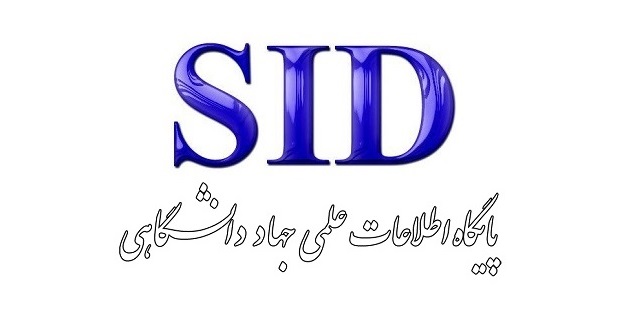Designing an Integrated Educational Package on Successful Academic Identity and Future Outlook Based on the Fundamental Reform Document of Education
Keywords:
successful academic identity, future outlook, Fundamental Reform Document of EducationAbstract
This study aimed to design an integrated educational package that fosters successful academic identity and future outlook among lower secondary school students, grounded in the principles of the Fundamental Transformation Document of the Education System of the Islamic Republic of Iran. The study employed a sequential mixed-method design with an exploratory orientation. The qualitative phase included a systematic review of 18 scholarly works selected via the PRISMA approach, and semi-structured interviews with 16 experts in psychology, educational sciences, and adolescent development recruited using purposive sampling until theoretical saturation. Data were analyzed through thematic analysis using Maxqda-V2018, applying open, axial, and selective coding to derive thematic categories. Based on the resulting matrix of core themes, an eight-session educational package was developed, structured around self-awareness, goal-setting, decision-making, communication, competence, autonomy, emotion regulation, academic well-being, and future perspective. Content validity was confirmed by 15 subject-matter experts using a standardized checklist, and final revisions were approved by the supervisory panel. The thematic analysis yielded six major thematic axes encompassing 41 subcomponents, which were incorporated into the package sessions. Expert validation confirmed the package’s content relevance, coherence, and cultural appropriateness. Preliminary implementation indicated statistically significant improvements in students’ goal-setting ability (p < .01), academic enthusiasm (p < .01), and academic well-being (p < .05), suggesting the intervention’s efficacy in strengthening both motivational and identity-based constructs linked to academic engagement and achievement. The developed educational package provides a culturally grounded, theoretically integrated framework for promoting adolescents’ academic identity and future orientation, offering educators a practical tool to enhance motivation, engagement, and well-being in alignment with national educational transformation goals.
Downloads
References
Abid, N., & Akhtar, M. (2020). Relationship between academic engagement and academic achievement: an empirical evidence of secondary school students. Journal of Educational Research, 23(1), 48.
Aboutorabi, S. B., Hosseinqolizadeh, R., & Mahram, B. (2019). Representation of the School's Organizational Structure in the Fundamental Transformation Document of the Education System of the Islamic Republic of Iran. School Management Journal, 7(2), 273-303.
Anbarstani, L., Zolfaghari Za'farani, R., Mir Esmaili, B. S., & Qayyumi, A. (2022). Formulating and Validating a Quality Management Model for Implementing the Educational Goals of the Fundamental Transformation Document of the Education System. Quarterly Journal of Critical Research on Human Sciences Texts and Programs, 105(11), 373-392.
Bırni, G. (2023). Exploring the Effects of Academic Achievement, Class Engagement, and its Motivations on University Students' Mental Well-being. European Journal of Psychology and Educational Research, 6(4). https://doi.org/10.12973/ejper.6.4.205
Chandramohan, G., & Pramila, K. (2022). Students' attitude and well-being and repercussions on academics after COVID-19. J Eng Educ Transform, 36, 479-483. https://doi.org/10.16920/jeet/2023/v36is2/23073
Chen, J., & Zhao, Z. (2024). A study on the influence of academic passion on PhD students' research engagement-The role of ambidextrous learning and academic climate. PLoS One, 19(6), e0303275. https://doi.org/10.1371/journal.pone.0303275
Chen, S. (2024). Structural modeling of Chinese students' academic achievement identity and basic psychological needs: do academic self-efficacy, and mindfulness play a mediating role? BMC psychology, 12(1), 142. https://doi.org/10.1186/s40359-024-01866-8
Closson, L. M., & Boutilier, R. R. (2017). Perfectionism, academic engagement, and procrastination among undergraduates: The moderating role of honors student status. Learning and Individual Differences, 57, 157-162. https://doi.org/10.1016/j.lindif.2017.04.010
Dunham, N. (2016). The academic identity of students in early childhood field-based initial teacher education. Unitec Institute of Technology.
Forouzandeh, E., & Kadkhodaee, M. (2021). Predicting the Academic Achievement of Academically Procrastinating Second-Year High School Students in Isfahan Based on Personality Types and Time Perspective. Journal of Teaching and Learning Research, 17(1), 187-209.
García, A. J., Fong, C. J., & Regalado, Y. M. (2023). Motivational, identity-based, and self-regulatory factors associated with academic achievement of US collegiate student-athletes: A meta-analytic investigation. Educational psychology review, 35(1), 14. https://doi.org/10.1007/s10648-023-09730-8
He, Z., Liang, Q., & Wu, H. (2023). The influence of professional identity on academic achievement among university students: The mediating role of academic self-efficacy. Journal of Education, Humanities and Social Sciences, 8, 1555-1561. https://doi.org/10.54097/ehss.v8i.4519
Hudig, J., Scheepers, A. W., Schippers, M. C., & Smeets, G. (2023). Goalsetting is Mindsetting: Guided Reflection on Life Goals Taps Into the Plasticity of Motivational Mindsets. Psychological Reports, 00332941231180813. https://doi.org/10.1177/00332941231180813
Karami Boroujeni, M., Rabiei, M., & Haji Hassani, M. (2022). The Effectiveness of Time Perspective Therapy on Balancing Students' Time Perspective. Journal of Social Injuries of Children and Adolescents, 37(11), 89-109.
Khodapanah, F., & Tamannaie Far, M. (2024). Discriminant Prediction of Academic Well-being Based on Self-Compassion, Happiness, and Academic Self-Efficacy. Quarterly Journal of Educational Psychology, 20(72), 161-188.
Kirkpatrick, D., & Kirkpatrick, J. (2006). Evaluating training programs: The four levels. Berrett-Koehler Publishers.
Lekwa, A. J., Reddy, L. A., & Shernoff, E. S. (2019). Measuring teacher practices and student academic engagement: A convergent validity study. School Psychology, 34(1), 109. https://doi.org/10.1037/spq0000268
Liu, Q., Du, X., & Lu, H. (2023). Teacher support and learning engagement of EFL learners: The mediating role of self-efficacy and achievement goal orientation. Current Psychology, 42(4), 2619-2635. https://doi.org/10.1007/s12144-022-04043-5
Meens, E. E. M., Bakx, A. W. E. A., Klimstra, T. A., & Denissen, J. J. A. (2018). The association of identity and motivation with students' academic achievement in higher education. Learning and Individual Differences, 64, 54-70. https://doi.org/10.1016/j.lindif.2018.04.006
Morosanova, V. I., Fomina, T. G., & Bondarenko, I. N. (2023). Conscious self-regulation as a Meta-resource of academic achievement and psychological well-being of young adolescents. Psychology in Russia: State of the art, 16(3), 168-188. https://doi.org/10.11621/pir.2023.0312
Myint, E. T., & Robnett, R. D. (2024). Correlates of adolescents' STEM career aspirations: the importance of academic motivation, academic identity, and gender. European Journal of Psychology of Education, 39(1), 189-209. https://doi.org/10.1007/s10212-023-00681-w
Negru‐Subtirica, O., Damian, L. E., Pop, E. I., & Crocetti, E. (2023). The complex story of educational identity in adolescence: Longitudinal relations with academic achievement and perfectionism. Journal of personality, 91(2), 299-313. https://doi.org/10.1111/jopy.12720
Norouzi, N. (2024). The Effect of Future Perspective Training on Academic Hope, Psychological Well-being, Goal Orientation, and Time Perspective in Eleventh-Grade Male Students Shahid Chamran University of Ahvaz].
Peetsma, T. T. D., & van der Veen, I. (2015). Relations between the development of future time perspective in three life domains, investment in learning, and academic achievement. Learning and Instruction, 33, 45-60. https://doi.org/10.1016/j.learninstruc.2014.04.001
Perumal, B. V. (2020). Ego-identity and academic achievement among B. Ed teacher trainees. St. Theresa Journal of Humanities and Social Sciences, 6(2), 1-14.
Przepiorka, A., & Sobol-Kwapinska, M. (2021). People with positive time perspective are more grateful and happier: Gratitude mediates the relationship between time perspective and life satisfaction. Journal of Happiness Studies, 22, 113-126. https://doi.org/10.1007/s10902-020-00221-z
Rahdar, M., & Bagherpour, M. (2023). The Effectiveness of Teaching Spiritual Concepts with a Religious Focus on Reducing Academic Alienation and Improving Academic Identity Components in Students. Journal of Research in School and Virtual Learning, 11(41), 97-106.
Rahimpour, S., Arefi, M., & Manshei, G. (2023). The Effectiveness of Time Perspective Training on the Passion and Perseverance of Second-Year High School Female Students. Journal of Teaching and Learning Research, 18(2), 111-130.
Ramezani Far, S., Erfani, N., & Karimi Khouygani, R. (2024). The Mediating Role of Academic Engagement in the Relationship between Academic Identity and Sense of School Belonging in Second-Year High School Female Students. Rooyesh-e Ravanshenasi Journal (Growth of Psychology), 13(5), 145-156. https://doi.org/10.61838/kman.jayps.5.11.2
Raouf Malayeri, M., Beheshti, S., Eskandari, H., & Abbaspour, A. (2019). Presenting an Expected Competency Model for Female Students in Tehran's Islamic High Schools and Its Implications for the Content of the Fundamental Transformation Document of Education. Quarterly Journal of Education and Training, 15(1), 80-99.
Ravan, A., Samavi, A., Javdan, M., & Hajializadeh, K. (2020). Modeling the relationships among academic identity, psychological sense of school membership, and teacher support: The mediating role of academic adjustment in academic performance. Avicenna Journal of Neuro Psycho Physiology, 7(4), 217-224. https://doi.org/10.32592/ajnpp.2020.7.4.103
Samadi, M. (2022). Analyzing the Dimensions and Components of Environmental Education in the Fundamental Transformation Document of the Education System and Validating It. Journal of Environmental Education and Sustainable Development, 10(3), 29-41.
Seginer, R. (2009). Future orientation: Developmental and ecological perspectives. Springer. https://doi.org/10.1007/b106810
Sengsouliya, S., Soukhavong, S., Silavong, N., Sengsouliya, S., & Littlepage, F. (2020). An investigation on predictors of student academic engagement. European Journal of Education Studies.
Shi, Z., Guan, J., Chen, H., Liu, C., Ma, J., & Zhou, Z. (2023). Teacher-student relationships and smartphone addiction: The roles of achievement goal orientation and psychological resilience. Current Psychology, 42(20), 17074-17086. https://doi.org/10.1007/s12144-022-02902-9
Soleimani, M., Ghadampour, E., & Abbasi, M. (2023). A Feasibility Study of Education Based on Successful Academic Identity on Academic Persistence and Academic Well-being. Rooyesh-e Ravanshenasi Journal (Growth of Psychology), 12(12), 33-42.
Talan, T., & Gulsecen, S. (2019). The effect of a flipped classroom on students' achievements, academic engagement and satisfaction levels. Turkish Online Journal of Distance Education, 20(4), 31-60. https://doi.org/10.17718/tojde.640503
Teo, S. C., Lilian, A., & Koo, A. C. (2023). Examining the effects of academic motivation and online learning on Malaysian tertiary students' psychological well-being and perceived learning performance. Cogent Education, 10(1), 2186025. https://doi.org/10.1080/2331186X.2023.2186025
Usán Supervía, P., & Salavera Bordás, C. (2020). Burnout, goal orientation and academic performance in adolescent students. International journal of environmental research and public health, 17(18), 6507. https://doi.org/10.3390/ijerph17186507
Downloads
Published
Submitted
Revised
Accepted
Issue
Section
License
Copyright (c) 2025 Elahe Mohadesi (Author); Ali Hosseinaei; Khalil Ghaffari (Author)

This work is licensed under a Creative Commons Attribution-NonCommercial 4.0 International License.







